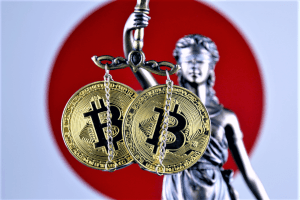These New Crypto Regulations Come into Force in Japan Today
It is the start of a new month all over the world, but in Japan, it may the start of a new era for the crypto industry, as a set of new legal amendments comes into force, changing the way that businesses dealing with cryptoassets need to operate in the country.

As of May 1, a series of amendments to the existing Payment Services and the Financial Instruments and Exchange acts come into force, following on from requests from the regulatory body charged with policing the nation’s crypto industries, the Financial Services Agency (FSA).
The FSA has stated that it wants to “strengthen the protection network for cryptocurrency investors.” Below is a brief summary of some of the highlights of the legislative changes:
- Leveraged (or margin) trading is now capped at x2. Exchanges have a six-month grace period to enact this measure (and it looks like some are choosing to wait right up until the very last minute).
- Overseas exchanges must not offer services to Japan-based customers without an operating permit from the FSA. There are currently 23 license holders, the vast majority of whom are Japanese firms. As reported, BitMEX has already announced this week that it will stop offering services to Japanese residents, while Coinbase is moving closer to its opening in this market.
- Crypto custodial services are now subject to the same licensing laws that apply to exchanges and brokerages, and thus must obtain FSA permits to operate in Japan.
- Exchanges, brokerages and wallet providers must keep their own funds separate from customer funds in banking procedures.
- Exchanges must offset crypto holdings kept in hot wallets with a roughly equivalent reserve sum held in offline cold wallets.
Although these new regulations may sound restrictive to some, there are signs that the FSA is prepared to work with the industry in a number of fields, particularly when it comes to self-regulation and the promotion of securities token offerings (STOs), an area that dozens of Japanese crypto and securities companies are keen to commercialize.
Per an official announcement, the FSA has also started the month off by granting two key crypto and blockchain business associations as “certified financial business associations.”
These are, firstly, the Japan Virtual Currency Exchange Association (JVCEA), a collective that comprises all of the nation’s licensed crypto exchanges, as well as a number of companies waiting to gain operating permits. The JVCEA has previously been given official self-regulatory status by the FSA, so this move will yet further boost its legitimacy.
The second group is the recently established Japan Security Token Offering Association, whose members include heavy-hitting businesses such as the SBI Group, e-commerce giant Rakuten and brokerage behemoth Tokai Tokyo, as well as a growing number of crypto-related firms.




